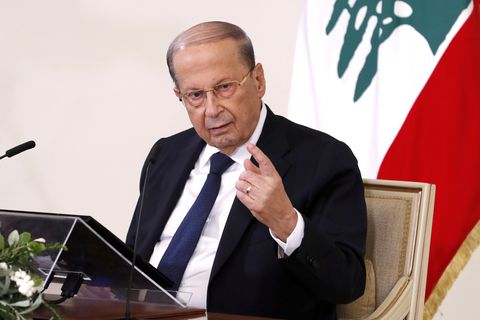On Sunday, the 89-year-old Christian president of Lebanon, Michel Aoun, who presided over the country’s devastating economic crash and the deadly Beirut port explosion, will vacate the presidential palace, leaving a huge gap at the top of Lebanon’s weak government.
Parliament has so far been unable to agree on a successor in the role, which has the power to sign bills into law, appoint new prime ministers, and green-light government formations before they are voted on by parliament.
The current caretaker administration has governed Lebanon for over half of Aoun’s term, as he has attempted to create a government for over six months.
Many Christians view Aoun as their defender in Lebanon’s corrupt system, but his detractors accuse him of helping Hezbollah gain power and enabling corruption. He is a divisive figure.
In 2016, Hezbollah and rival Maronite Christian politician Samir Geagea endorsed him for president, bringing then-leading Sunni politician Saad al-Hariri back as prime minister.
In 2017, the Lebanese army battled Islamist militants on the Syrian border with Hezbollah’s help, and in 2020, top energy firms began preliminary drilling in offshore blocks. A new electoral law was passed in 2018.
During his final week in office, he signed a U.S.-backed agreement delineating Lebanon’s southern border with Israel.
Those modest successes pale in comparison to the 2019 financial meltdown, which has pushed over 80% of the population into poverty and prompted the most widespread anti-government protests in recent history.
The explosion at the Beirut port in 2020, which killed more than 220 people, was inextricably linked to Aoun’s term.
After 15 years in exile, he returned to Beirut when Syrian forces withdrew under international pressure, following the 2005 assassination of former prime minister Rafik al-Hariri.
Hezbollah, an armed group, received important Christian backing from him when his Free Patriotic Movement allied with Hezbollah in 2006. During the maritime border talks, Aoun credited Hezbollah for acting as a “deterrent” against Israeli attacks.
Image Credit: Dalati Nohra/Handout via REUTERS



















